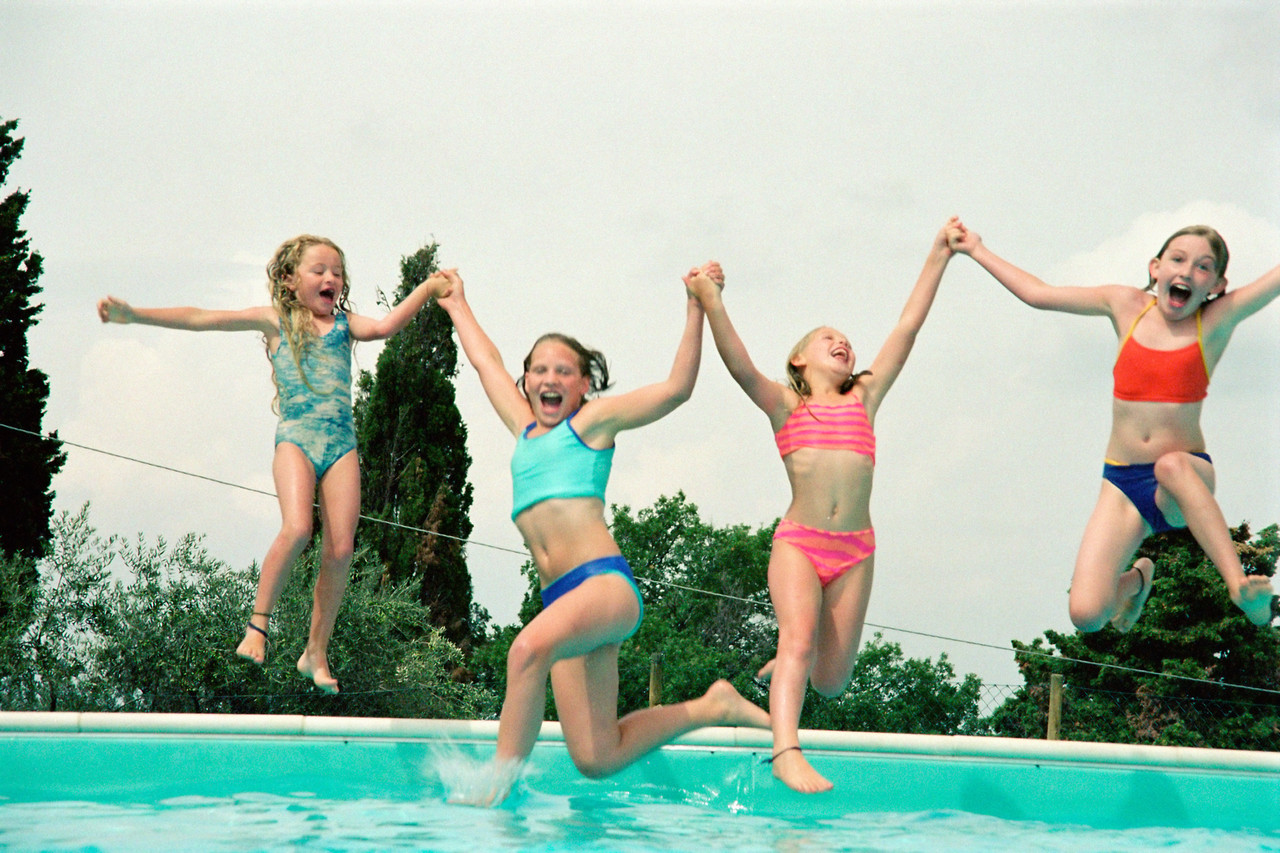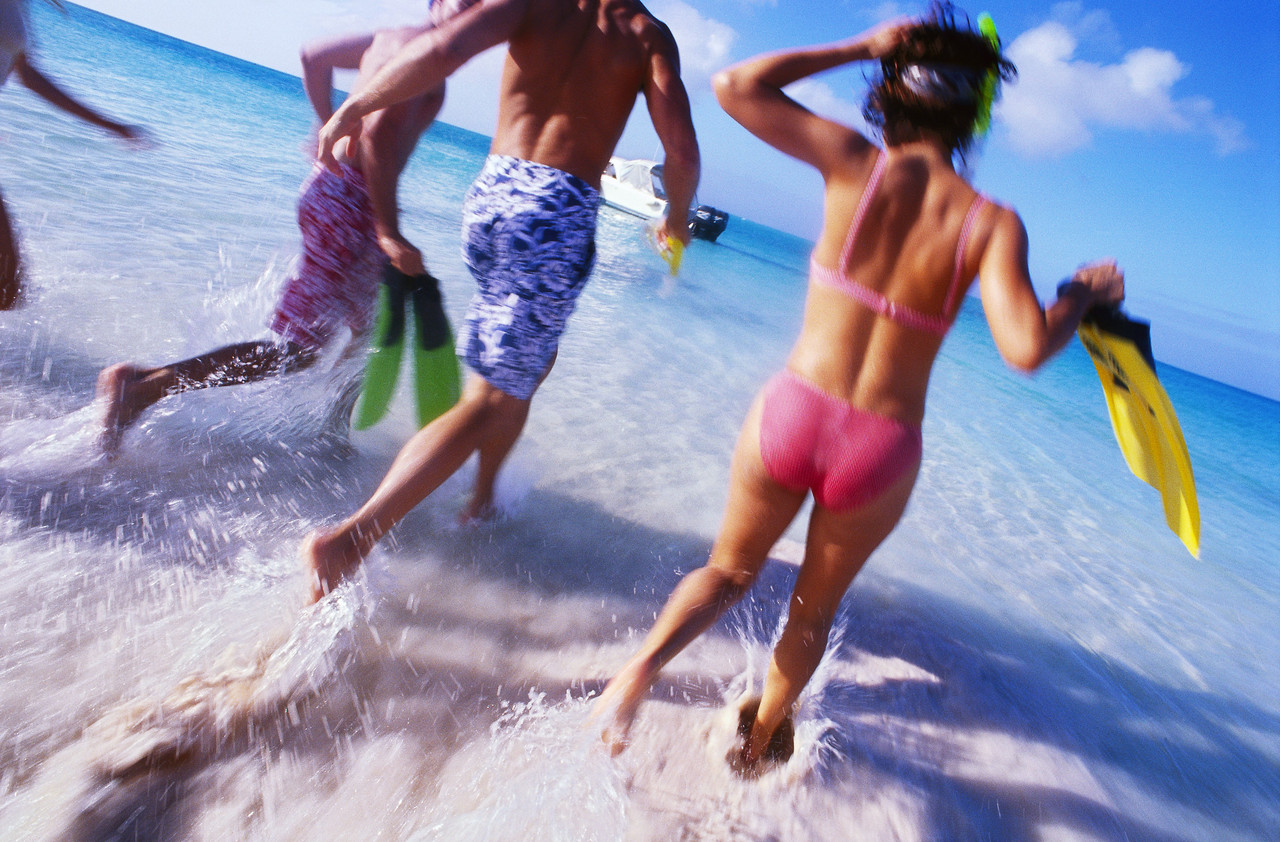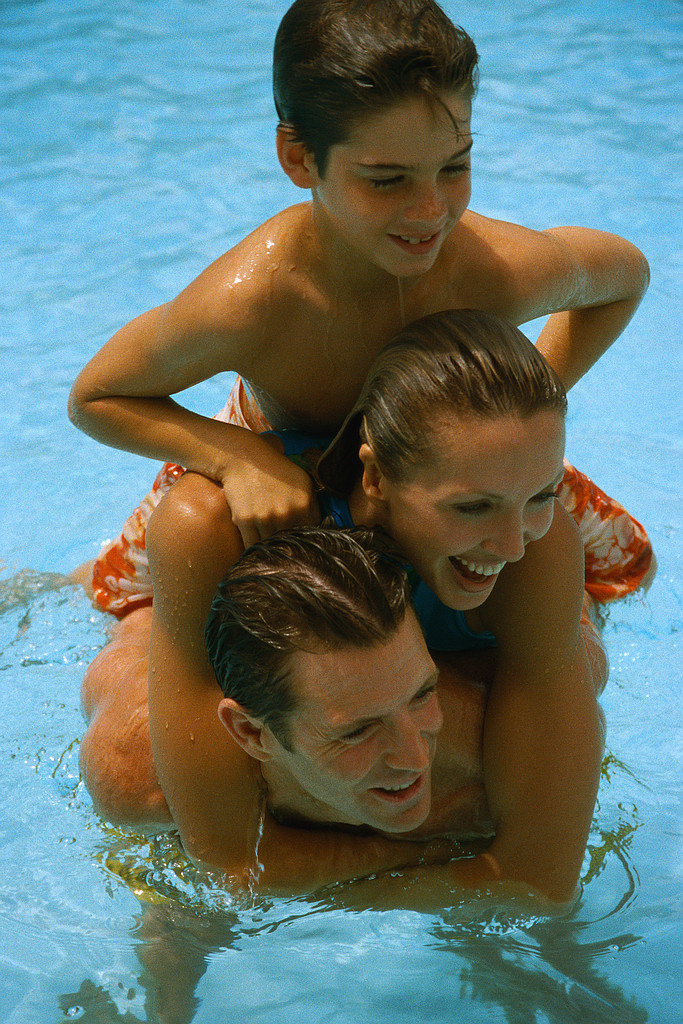Posted: 7/15/2014
Summer Fun In & Around Water
by Andrea Hagan, Prevention Resource Specialist
Swimming is one of the most popular summertime activities, and living in Florida, we are never at a shortage of bodies of water to swim in. Between pools, lakes, oceans and water parks, there are plenty of ways to cool off from the sweltering Florida heat. With the pool and beach season now upon us, it is important to be mindful of your family’s safety in and around water.
As my mom always reminded us... "SAFETY first!
Thinking back to my own childhood, the Memorial Day holiday signified the official “start” to the summer season, indicating that the school year would soon be coming to an end. As kids, we couldn’t wait for the first jump into a pool or trip to the beach to swim in the ocean. As a child, I was not concerned with the rules for being safe in the water or the dangers that may be present. My goals were simple: be in the water and have fun! I knew I could trust my mom to take care of the rules part, that she would be watching and reminding us to swim safely.

One day while swimming at the local pool, my carefree days of summer and swimming came to an abrupt end. Even with the most vigilant of mothers keeping a watchful eye on her kids in the pool, it only took a moment for me to be just barely out of her sight. A bigger kid jumped into the pool, not watching where he was jumping, and landing right on top of my head. I was immediately thrust under water, unable to catch my breath, unable to tell the top of the water from the bottom, out of sight and unable to scream out for help. I was alone, submerged under the water, and no one could see or hear me struggling. Thankfully I had taken swimming lessons, was able to remain calm and the survival skills I learned early on kicked in. Oh, did I mention I was only five years old? What was only moments seemed like forever until I reached the surface, gasping for air and in obvious distress. Back in my mother’s sight, she quickly jumped into action and whisked me from the pool, making sure I coughed up the water I ingested and was able to breath. What was a fun, carefree afternoon in the water quickly became a scary memory that would last a lifetime. The outcome, unfortunately, could have been much worse.
I still continued to swim and play in the water throughout my childhood. I participated on swim teams and even became a certified life guard. The memory of being trapped under water – unable to breathe or make a sound – has stayed with me, though, as did my gratitude for a mom who made me take swimming lessons, always stressed safety and the rules for being around the water.
I was alone, submerged under the water, and no one could see or hear me struggling.
Whether your child is six or sixteen, be sure to make it a priority to take the time to review the rules of water safety and create an appreciation for and understanding that will last a lifetime.
10 common-sense tips from Florida Circle of Parents to help parents keep safety first:
-
Swim where there is a lifeguard (or responsible parent) on duty.
I know this seems obvious and is posted at every pool, but situations arise all the time where this is an issue. Many people think about this when it comes to an apartment, community or hotel pool, but what about when your child swims at a friend's house?
Making sure an adult is monitoring the pool at all times is essential. Even strong swimmers can get overwhelmed, especially when distracted by playing with a buddy.
-
Small doesn't equal safe.
Hot tubs can be just as dangerous as large pools. PoolSafely.gov recommends the same safety precautions for both, including safety covers and fences. Children need to be monitored at all times, no matter the size of the space they are splashing in.
-
Kids should avoid drains and pipes.
Pool plumbing can be a hazard. Moved by the tragic death of a 7-year-old girl who was entrapped by a drain, Congress passed the Virginia Graeme Baker Pool and Spa Safety Act to require pools to comply with safety standards. A helpful checklist to determine whether your pool is safe is available at PoolSafely.gov.
-
Keep it mellow.
I can still hear the echoes of "No running!" yelled from a lifeguard chair from my time at our city pool as a child. That advice was good advice. Running on slippery surfaces is dangerous for everyone around. Someone could fall into the pool, accidentally push a smaller child towards water or hit the slick pool deck causing injury. Keeping horseplay under control may take some self-control {and parental instruction}, but in the end everyone will have a better day. Don't forget to set a good example!
-
Wear sunscreen.
Even if kids are outside for just a few minutes, they are prone to sunburn. I love the sunscreen swim gear that now can be found almost anywhere swimming suits are sold. Children can wear swim shirts with a good SPF. They protect better than t-shirts and are much easier to wear in the pool because they are not bulky and dry quickly. This also gives the ability to place sunscreen underneath the shirts for an extra layer of protection. If you are watching other kids at the pool, check with their parents for possible sunscreen allergy issues which are not uncommon to specific ingredients.
-
Don't step away.
I am busy. You are busy. We all have that ONE thing that needs to be done right now! But slipping away to change the laundry or answer a phone call could be a snap decision with disastrous consequences. If something really needs your attention, call a swim break: "Everyone out of the pool and indoors for a safety pause".
-
Have a first-aid kit on hand.
Being prepared for minor injuries can help avoid major ones. Bumps and bruises are a part of childhood. When they are easily treated with bandages, antibiotic ointment and cleaning pads that you have on-hand, the fun can quickly continue.
-
Set boundaries.
If you are in charge, don't be afraid to take charge. Showing kids where the deeper parts of the pool are before they enter is always a good idea. Taking kids on a "pool tour" to see where they can touch and where the easiest way to an edge is can help them find safe splashing places. Very small children should NEVER be in a pool without an adult, even if it seems shallow.
-
Watch out for lightning.
Lightning sometimes beats rain. Even if it isn't raining yet, lightning in the distance should be a reason to run for cover away from water. An approaching storm is a sign to get out of the pool.
-
Be a party-pooper.
Nobody wants the fun to end, but if you notice kids getting tired, it is time to take a water break. Providing plenty of drinking water is sometimes overlooked with all that water in the pool, but dehydration is a real possibility even when swimming. Safety is essential to summertime pool fun. Supervising swimming and splashing kids is a hands-on activity with the bonus that YOU are in the middle of the sunny adventure.
To find swimming lessons in your area, contact your local YMCA, city facilities, or swim school or call 2-1-1.
Polk County
Hardee County
Highlands County
Here are a few great resources for additional information on water safety: